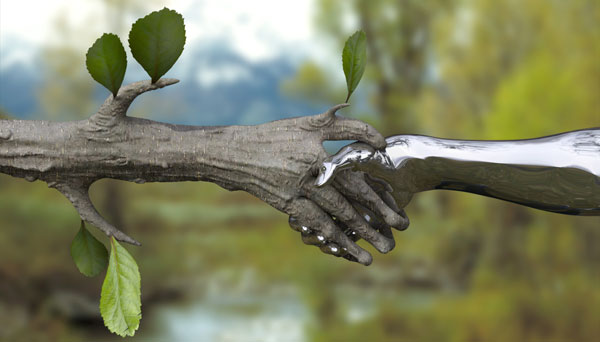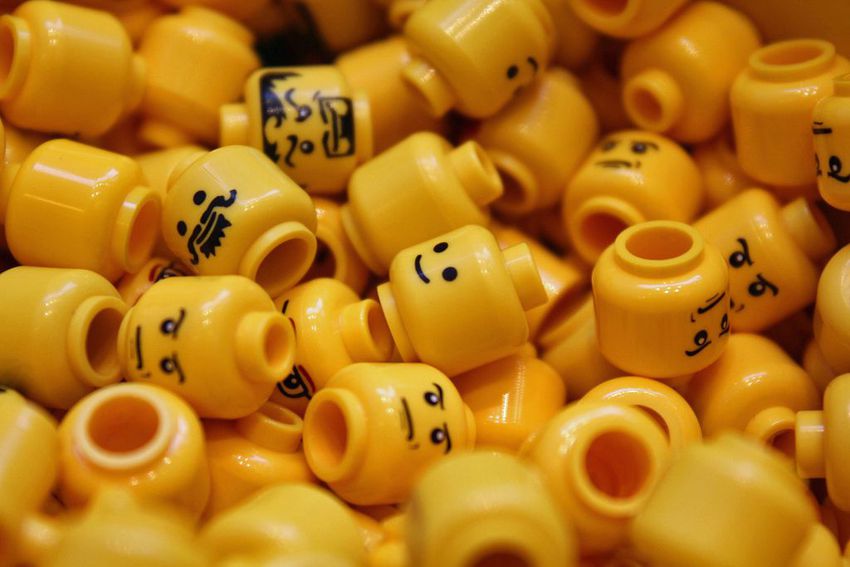By and large, constable, the good’s an illusion, a fable folks tell themselves so they can get through the day without screaming too much.
–Andre Linoge
 The concept of morality has been constantly explored in video games since the beginning: protagonist/antagonist, good/evil, light/dark. There is a black and white morality that rules many game worlds, and we as players often respond positively to that. We want to be good guys; or sometimes, we want to play at what it is to be the bad guy. Games today often give us both moral and immoral choices, but they may be a facade: you are still punished for choosing a “bad” option. A recent example of this is Stardew Valley. Yes, you can choose to buy a Joja Mart membership, but the game will punish you. For those who haven’t played, Joja is clearly a Walmart/Sam’s Club-esque store that boasts a cold atmosphere and exhausted employees, as opposed to the sweet Pierre’s mom-and-pops shop. Once you buy the membership to Joja, the community center is replaced by a Joja Mart warehouse, and the play style changes dramatically: you are not encouraged to explore and experiment, now cash is king. Rather than requiring resources, the game will begin to only use cash as currency.
The concept of morality has been constantly explored in video games since the beginning: protagonist/antagonist, good/evil, light/dark. There is a black and white morality that rules many game worlds, and we as players often respond positively to that. We want to be good guys; or sometimes, we want to play at what it is to be the bad guy. Games today often give us both moral and immoral choices, but they may be a facade: you are still punished for choosing a “bad” option. A recent example of this is Stardew Valley. Yes, you can choose to buy a Joja Mart membership, but the game will punish you. For those who haven’t played, Joja is clearly a Walmart/Sam’s Club-esque store that boasts a cold atmosphere and exhausted employees, as opposed to the sweet Pierre’s mom-and-pops shop. Once you buy the membership to Joja, the community center is replaced by a Joja Mart warehouse, and the play style changes dramatically: you are not encouraged to explore and experiment, now cash is king. Rather than requiring resources, the game will begin to only use cash as currency.
In games, it is pretty clear who is good and who is bad, though there are some exceptions to this of course. However, for the most part, you are good if you do good deeds and bad if you do bad ones. This idealized version of reality does not match up with our physical reality however. Playing Stardew Valley this week, while following the horrible news stories surrounding the Stanford rapist*, I started to wonder at the current conception of morality. After all, everyone from the rapist’s past had the same refrain: he was such a good guy.
Initially people responded the same way to recent accusations of a television star drugging and raping women. This is typically how most people respond when they find out the football player raped someone or the family-man politician is embroiled in a pedophelia ring. But he was such a good guy.
If video games define morality and goodness through deeds, choices, and actions, how does the physical realm determine who is “such a good guy?” And why is it so much more shocking that a Stanford student and high achieving swimmer could rape someone than it is that a security guard could shoot someone? No one is coming out and saying Orlando’s Pulse shooter is a good guy.
I believe this phenomenon is taking place, in part, because American society has made a huge mistake, and perhaps we have always made this mistake: we conflate success with morality. We think that because someone has achieved highly, been successful in a sport or in a career, or comes from a well to do family that this automatically makes them a “good person.” The Stanford rapist wasn’t a good guy. The Stanford rapist achieved a lot, but I have not read a single story about all the times he volunteered, how he spoke out against violence against women, or how he did any kind of action that a video game would deem good. He has seemingly has never done a good, selfless, important deed in his life. He is deemed a “good guy” because he has money and is successful. This is a huge problem with our way of thinking that needs to stop now. This is the type of thinking that leads idiots to claim that people who rape aren’t rapists. People couldn’t believe a television star was a serial rapist because he was everybody’s favorite dad on TV. Someone is a rapist if they rape; being successful does not change that.
You could ask why this matters. It’s a distinction without a difference, right? WRONG. Conflating success with morality is exactly why the Stanford rapist will only spend three months in jail. The letters written to defend him didn’t cite any concrete “good” deeds to show he is a good person, they cite achievements. And the judge believed it. Conflating achievement with morality silences victims, and it leads to victim blaming and the re-victimization of victims. Why? Because people can’t believe that such a good guy would do something like rape a woman or molest a child. So the victims must have elicited the attack or lied.
I can think of very few things that have more of a direct, real-world, and negative impact than this conflation. And it needs to stop now. We need to demand that morality stands on it’s own, independently from race, gender, wealth, success, and achievement. I bet the Stanford rapist does not see himself as a rapist. I bet he sees himself as a good guy who made a mistake. And the fact that someone can do what he did and still see himself as a good guy proves that something is very fucked up about how we see morality.
What should we do? Well, let’s look to video games. If you choose an immoral option in games, you face consequences. That’s a good start that we can learn from. It also doesn’t matter how much I’ve accomplished in Stardew Valley, if I buy a membership at Joja Mart, I will face the same consequences as if I had accomplished only a little. That would also be a good start to emulate. In games, there rarely are instances where people are excused for committing heinous deeds. In fact, most video games are centered around hunting the perpetrator down. I’m not saying we need to be black and white, that this will be easy, or that it can change tomorrow. But if we can stop saying that people are the good guy simply because they are successful, we may be able to recognize the crimes perpetrated by these good guys more quickly. And punish them more appropriately.
Editorial Note:
* It is our policy here at NYMG not to name criminals so as to not increase their notariety, but we do name their victims to make sure that we place the spotlight where it needs to be.
Our thoughts, prayers, and general rage are with those murdered or injured in this act of domestic terrorism. Let us never forget our dead. #Saytheirnames
- Edward Sotomayor Jr., 34
- Stanley Almodovar III, 23
- Luis Omar Ocasio-Capo, 20
- Juan Ramon Guerrero, 22
- Kimberly Morris, 37
- Luis S. Vielma, 22
- Amanda Alvear, 25
- Enrique L. Rios Jr., 25
- Jean Carlos Mendez Perez, 35
- Christopher Andrew Leinonen, 32
- Jonathan Antonio Camuy Vega, 24
- Javier Jorge-Reyes, 40
- Luis Daniel Wilson-Leon, 37
- Akyra Murray, 18
- Brenda Lee Marquez McCool, 49
- Shane Evan Tomlinson, 33
- Tevin Eugene Crosby, 25
- Deonka Deidra Drayton, 32
- Cory James Connell, 21
- Eddie Jamoldroy Justice, 30
- Miguel Angel Honorato, 30
- Peter O. Gonzalez-Cruz, 22
- Darryl Roman Burt II, 29
- Alejandro Barrios Martinez, 21
- Anthony Luis Laureanodisla, 25
- Geraldo A. Ortiz-Jimenez, 25
- Franky Jimmy Dejesus Velazquez, 50
- Martin Benitez Torres, 33
- Mercedez Marisol Flores, 26
- Xavier Emmanuel Serrano Rosado, 35
- Gilberto Ramon Silva Menendez, 25
- Simon Adrian Carrillo Fernandez, 31
- Oscar A. Aracena-Montero, 26
- Joel Rayon Paniagua, 32
- Jason Benjamin Josaphat, 19
- Juan P. Rivera Velazquez, 37
- Luis Daniel Conde, 39
- Juan Chevez-Martinez, 25
- Eric Ivan Ortiz-Rivera, 36
- Jerald Arthur Wright, 31
- Leroy Valentin Fernandez, 25
- Jean C. Nives Rodriguez, 27
- Rodolfo Ayala-Ayala, 33
- Yilmary Rodriguez Sulivan, 24
- Christopher Andrew Leinonen, 32
- Angel L. Candelario-Padro, 28
- Frank Hernandez, 27
- Paul Terrell Henry, 41
- Antonio Davon Brown, 29
- Christopher Joseph Sanfeliz, 24




